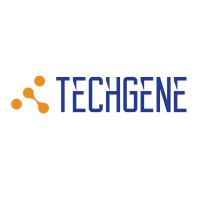Description
Job Description
- Teradata Expertise:
- In-depth knowledge of Teradata architecture and components (e.g., AMP, Nodes, Parsing Engines, etc.).
- Proficiency in Teradata SQL and Teradata utilities.
- SQL and Scripting:
- Strong SQL skills for querying and managing relational databases.
- Scripting experience (e.g., Shell, Python) for automating tasks.
- Know tools like Teradata Utilities (e.g., BTEQ, FastLoad, MultiLoad, TPT, etc.).
- ETL Tools:
- Experience with ETL tools and technologies used in Teradata environments.
- Performance Optimization:
- Knowledge of query optimization techniques, indexing, partitioning, and workload management in Teradata.
- Data Warehousing Concepts:
- Strong understanding of data warehousing principles, including star/snowflake schemas, OLAP, and ETL processes.
- Cloud Platform / AWS Expertise:
- Proficiency with core AWS services: EC2, S3, RDS, Lambda, CloudWatch, CloudFormation, etc.
- Experience with AWS networking (VPC, subnets, security groups, NACLs) and security management.
- Familiarity with AWS storage options, such as S3, EFS, and Glacier, in the context of large-scale data storage and retrieval.
- Teradata and AWS Integration:
- Experience deploying and managing Teradata in AWS cloud environments.
- Knowledge of AWS services that enhance Teradata performance, such as using S3 for staging data or integrating with Redshift for analytics.
- Automation and Infrastructure as Code (IaC):
- Hands-on experience with AWS CloudFormation, Terraform, or similar tools for automating infrastructure deployment.
- Proficiency in automating ETL pipelines and data processing workflows using AWS Lambda, Step Functions, or AWS Glue.
- Data Security in AWS:
- Understanding of encryption and security protocols for data stored and processed in AWS.
- Experience implementing compliance standards such as GDPR, HIPAA, or other data protection regulations in cloud environments.
Responsibilities:
- Database Management:
- Design, implement, and maintain Teradata databases.
- Optimize and tune queries for performance.
- Monitor and troubleshoot database issues.
- ETL Development:
- Develop and maintain ETL (Extract, Transform, Load) processes for data integration and transformation.
- Use tools like Teradata Utilities (e.g., BTEQ, FastLoad, MultiLoad, TPT, etc.).
- Data Modeling:
- Create and maintain data models to support business processes.
- Work with stakeholders to understand data requirements and design solutions.
- Performance Tuning:
- Identify and resolve performance bottlenecks in SQL queries, system configuration, or data design.
- Regularly monitor and optimize system performance.
- Data Security & Governance:
- Implement data security best practices.
- Ensure compliance with data governance policies and regulations.
- Cloud Integration and Management:
- Implement and manage Teradata on AWS infrastructure, leveraging AWS services for scalability and performance.
- Manage data migration from on-premises Teradata environments to AWS cloud-based Teradata instances.
- Ensure seamless integration between Teradata and AWS services like S3, Redshift, RDS, and Lambda.
- Cloud Infrastructure:
- Design and deploy cloud infrastructure (VPCs, EC2 instances, S3 buckets) to support Teradata environments.
- Implement networking and security best practices in AWS to ensure secure data access and storage.
- Automation and DevOps:
- Automate infrastructure provisioning, scaling, and monitoring using AWS tools like CloudFormation, Terraform, or AWS CLI.
- Use AWS Lambda for automating ETL processes or handling specific workloads.
- Data Warehousing and Analytics:
- Leverage AWS data services (e.g., Redshift, Athena, Glue) to complement Teradata workloads.
- Implement data pipelines using AWS services for ETL processes, integrating data from various sources into Teradata.
- Security and Compliance:
- Implement AWS security best practices, such as IAM roles and policies, to secure Teradata environments in the cloud.
- Ensure compliance with relevant data governance policies, including encryption at rest and in transit.
- Collaboration:
- Work closely with data architects, analysts, and other stakeholders to understand data needs and deliver solutions.
Key Skills
Education
Any Graduate
- Posted On: 21-Dec-2024
- Experience: 5+ years of experience
- Openings: 1
- Category: Sr. Data Engineer
- Tenure: Flexible Position

